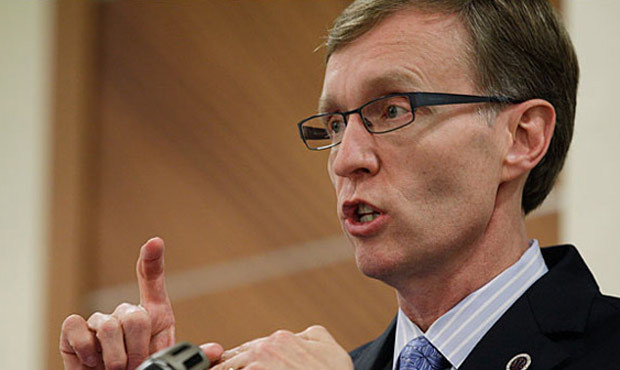Debate over state charter schools still isn’t over
May 25, 2018, 12:04 PM | Updated: May 27, 2018, 9:41 pm

Former state Attorney General Rob McKenna. (File, Associated Press)
(File, Associated Press)
It may surprise you to know that the debate over whether or not Washington state charter schools are constitutional still isn’t over.
Voters approved an initiative in 2012 that allows up to 40 charter schools in Washington state. The state became the 42nd to allow them.
In 2015, the state Supreme Court ruled charter schools were unconstitutional. However, the Legislature came up with a workaround: fund the schools with state lottery revenue instead of from the general fund.
But teachers unions and other groups weren’t happy. They sued over the 2016 law enacted after court justices struck down the voter-approved charter school law.
There are now 11 charter schools, with another scheduled to open in fall. Whether or not the schools remain open is up to the Washington State Supreme Court, which heard arguments from charter school opponents last week.
Former state Attorney General Rob McKenna argued for public charter schools. Opponents, he says, argue that public charter schools violate a provision in the state Constitution that requires the state to provide a general and uniform system of public education. However, supporters say charter schools are just another form of public school — what McKenna calls “common” schools.
The argument that charter schools need to be governed the same as public schools also misses the point, McKenna says. They aren’t funded by property taxes and the state general fund. Public charter schools receive funding from the state via the Washington opportunity pathways account, which receives money from the lottery. So, McKenna says, the funding argument “basically fails.”
But couldn’t the argument be made that the money from the opportunity pathways account be given to existing public schools, instead of new charter schools?
McKenna argues all the money is being used for public schools. The term public schools, he says, is being misused to confuse the people.
“What opponents are trying to do is confuse public schools generally with common schools specifically,” he said.
It’s also unlikely, according to McKenna, that public charter schools will ever be big enough to compete with traditional public schools. Even if they do, it won’t be any time in the near future.
And, “frankly, if public common schools became that bad … we’d have a much bigger problem.”













